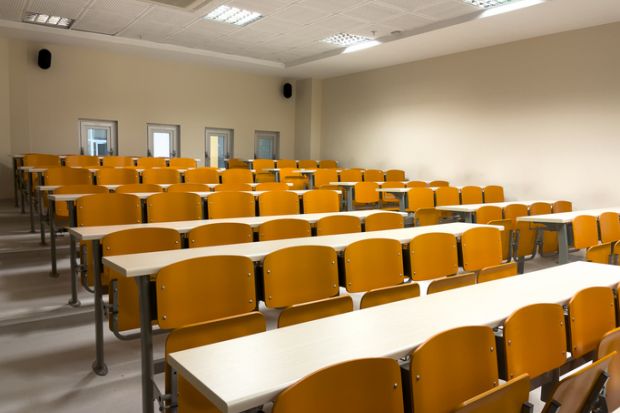International undergraduate enrolments in the Netherlands have dropped by 6 per cent this year compared to the year prior, a decline the umbrella body Universities of the Netherlands (UNL) has described as “worrying”.
The decline comes amid ongoing government efforts to cut international student numbers, largely by reducing English-taught programmes, with education, culture and science minister Eppo Bruins pushing for the passage of a strict “internationalisation in balance” bill.
While student intake from overseas declined in 2024-25 across most disciplines, UNL said, the decrease was particularly notable in sectors including language and culture, where international enrolments fell by 17 per cent, and natural sciences, which saw a drop of 13 per cent. The only subject area to see an increase was technical studies, with a rise of 19 per cent compared to 2023-24.
“It is of the utmost importance that we ensure that we retain the added value of internationalisation,” UNL president Caspar van den Berg said. “The government wants to drastically reduce the number of English-language programmes with rigorous legislation. As a result, many programmes are in danger of disappearing and the labour market is missing out on highly qualified talent.
“Anyone who follows developments in the world sees that keeping out international talent is outdated. In turbulent times in which the Netherlands desperately needs all the knowledge to remain safe and prosperous, we are closing the door on international talent. That is inexplicable.
“Countries such as Belgium, Germany and France understand very well that there is a global battle for talent, so it is high time that the Netherlands also gets its head out of the sand.”
Last April, Dutch universities agreed under pressure from the government to reduce programmes taught solely in English, with UNL suggesting that a range of courses be modified to either be taught wholly in Dutch, incorporate a Dutch-language track or establish a quota for English-taught admissions.
In October, education minister Bruins proposed a tightened version of the proposed “internationalisation in balance” act, stating: “I want to make the Dutch language the norm again, so that language skills improve and the international talent that comes here to study then also stays to contribute to our economy and society.”
The bill would restrict instruction in a language other than Dutch to a maximum of a third of an undergraduate programme’s curriculum, with government permission required to teach an entire programme in another language.
Such permission would only be granted in specific circumstances, for instance, if the course concerned sectors with shortages in the labour market or if it had an “inextricably international character”.
Register to continue
Why register?
- Registration is free and only takes a moment
- Once registered, you can read 3 articles a month
- Sign up for our newsletter
Subscribe
Or subscribe for unlimited access to:
- Unlimited access to news, views, insights & reviews
- Digital editions
- Digital access to THE’s university and college rankings analysis
Already registered or a current subscriber?









